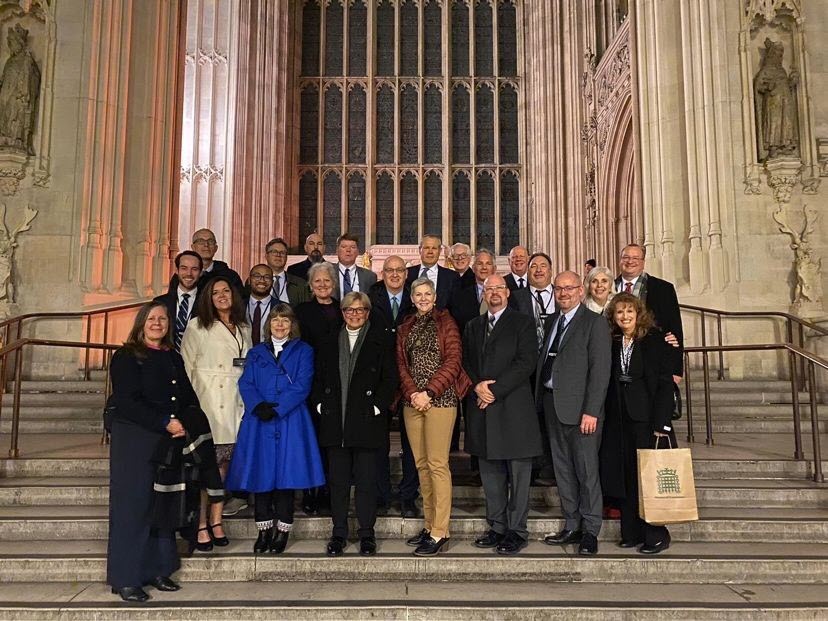
A recently signed mutual recognition agreement between the National Council of Examiners for Engineering and Surveying and the Engineering Council–UK could dramatically streamline reciprocal licensure in both countries and lead to a heightened standard for engineering internationally.
The agreement, signed during NCEES’ recent annual meeting in Chicago, provides a more direct path for licensed engineers to practice in both the United States and the United Kingdom without compromising professional standards. The MRA upholds discipline-specific and jurisdictional requirements for those seeking to practice internationally. Benefits include a simplified path for professional engineers in participating states to more easily obtain the CEng title (chartered engineer as granted by the UK Engineering Council) and expanded professional mobility to work in the United Kingdom.
“The US-UK MRA mutual recognition of professional engineering qualifications is a significant step forward for licensure and civil engineering standards on an international scale,” said April J. Lander, MEM, JP, ENV SP, A.MASCE, member of the ASCE Board of Direction as director of Region 10, which includes the United Kingdom.
“More engineers obtaining a U.S. P.E. license or UK CEng and practicing across borders will aid in meeting workforce shortages, business growth, and professional development.”
NCEES administers the national engineering examinations, but it is the state boards that issue the professional licenses, so it will be essential for the boards to sign on to the agreement. So far, 26 states have signed letters of intent, extending the streamlined reciprocation to millions of practicing engineers in America.
“The world is shrinking every day, and advancements in technology have made it possible for us to communicate and collaborate more with our international counterparts,” NCEES CEO David Cox said. “The MRA and its increased opportunities for licensed engineers to practice in the United Kingdom, much like the mobility we have between the states, is a great example of that.”
The agreement builds on the framework of the International Engineering Alliance, which focuses on fostering international agreements that govern the recognition of engineering educational qualifications and professional competence and began as a result of the Atlantic Declaration, a new economic partnership that includes mutual recognition of professional qualifications in areas like engineering, signed by President Biden and British Prime Minister Sunak in June 2023.
ASCE Board of Direction member Rossana D’Antonio, P.E., G.E., F.ASCE, has taken an active role in the process since its beginning. In 2020, California Governor Gavin Newsom appointed D’Antonio to the state’s Board of Professional Engineers, Land Surveyors, and Geologists, and in February of this year, she represented the California board as part of a delegation led by NCEES in London to negotiate the mutual agreement.
“With a world that has become much more compact and interconnected, the state boards must strive to consider all reasonable pathways to licensure based on stronger collaborative partnerships and increased economic opportunities on both sides of the Atlantic. The MRA could not be more timely,” D’Antonio said.
“As a global society, this historic mutual recognition professional licensing agreement is important because it not only addresses the current workforce crisis but also increases opportunities in trade, jobs, innovative solutions, and international collaboration for both the U.S. and the UK.”
ASCE proudly welcomes NCEES as the Society’s 2024 National Educational Sponsor. In that role, NCEES has made a significant financial contribution to various ASCE programming and initiatives, including serving as the title sponsor for the Cities of the Future Campus Screening program.



